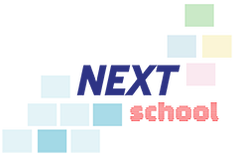If you're looking for a deeper dive into our scholarly contributions, check out the articles that our team has published to date:
Publications
Exploring the limits of 21st century educational change discourses.This paper discusses the discourses surrounding an ambitious high school transformation project in a large Canadian city that sought to reimagine education for 21st century learning. It was grounded in a broad review of the latest educational research. While an initial eight schools signed on, by the end of the second year all had left the project. Drawing upon Gee’s ([2005]. An introduction to discourse analysis: Theory and method. New York, NY: Routledge; [2014]. How to do discourse analysis: A toolkit. New York, NY: Routledge) tools for analyzing ‘Knowledge Building’ discourses, we explore how the project’s communications produced tensions and contradictions, which reflect similar ones within the global research discourses on educational change. Key elements include strong branding, inconsistent messaging over objectives and ownership, centralized control and external sources of authority, a ‘start fresh’ ethos, and unfamiliar educational values from systems and design thinking. Ultimately, neoliberal assumptions about the means and ends of schooling embedded in the 21st century change discourses undermined the collaborative and teacher driven stated aims of the project.
Low, B., Farmer, F., Levitan, J., Butler Kisber, L., Rosenberg, A., Maccannell, E., ... & Starr, L. (2022). Exploring the limits of 21st century educational change discourses. Discourse: Studies in the Cultural Politics of Education, 1-13. NEXTschool reform: Situating local perspectives within global trends for 21st century learning.
Learning from innovative pedagogical models in New Zealand, the United States, and Canada, a local Québec initiative called NEXTschool is attempting to align English secondary schools in the province with educational models that engage in 21st century learning competencies. In this paper, we describe research informing the NEXTschool initiative. We consider its general aspirations and vision for 21st century education—as outlined by LEARN, the organization facilitating this initiative—in relation to global trends for educational change. We then explore some of the concerns of the educators, administrators, and educational partners who have been brought on board to participate in a design process that aims to create the structures that will mediate the NEXTschool model locally. This article aims to illuminate an approach to educational change that educators and their partners can focus on to reflect global, 21st century concerns in ways that are appropriate for specific, local contexts.
Starr, L. J., Rosenberg, A., Levitan, J., MacCannell, E., & Gold, V. (2019). NEXTschool reform: Situating local perspectives within global trends for 21st century learning. Systemic Change Journal, 1-21. |
Educational Change and NEXTSchool: A Review of Literature Informing Innovative Approaches to Teaching and Learning.
In this paper, we examine the current literature on whole-school-system change processes, and the ways in which research findings may be applied to schools in Quebec, Canada. Throughout the paper we use a current school change initiative, NEXTschool, to explore the possibilities and challenges that some of this literature presents, applied to a specific context. At the conclusion we offer a conceptual framework that underpins how we conceptualize the NEXTSchool initiative. The review focuses on three fields that have emerged as relevant to current change movements: 21st century educational change/reform, power dynamics, and design thinking as a systems-change process.
Starr, L., Levitan, J., Butler-Kisber, L., Rosenberg, A., Gold, V., & MacCannell, E. (2020). Educational Change and NEXTSchool: A Review of Literature Informing Innovative Approaches to Teaching and Learning. SFU Educational Review, 13(1), 7-28. Researching educational Reform as it happens: Supporting the NEXTschool initiative through research.
This study examines an attempt at educational reform that utilizes design thinking. The discussion in this piece is focused around a specific reform effort that is working towards educational systems change in Québec, Canada through design thinking, sharing autonomy amongst educational partners. The practical exploration detailed in this study illuminates how such educational change efforts may be supported or obstructed as a context for understanding the values and drawbacks of a design thinking approach to reform. This study engages our own experiences through discussions and heuristics on educational change, systems thinking, and design thinking in an attempt to unpack the value of sharing autonomy across a diverse group of educational partners. Because of our personal involvement in the reform initiative under investigation, we approached this analysis from an emic perspective, analyzing the challenges and opportunities observed by the research team throughout the design phase of the reform. By situating our early formulations within the study of systems change and educational reform, we hope to contribute a body of evidence that offers a practitioner perspective to research on multi-stakeholder educational change efforts, specifically those that involve design thinking.
Rosenberg, A., MacCannell, E., Gold, V., Caesar, A., & Starr, L. (2020). Researching educational Reform as it happens: Supporting the NEXTSchool initiative through research. Conference proceedings from ARNA 2019, McGill University, Montreal, 26-28 June. |
